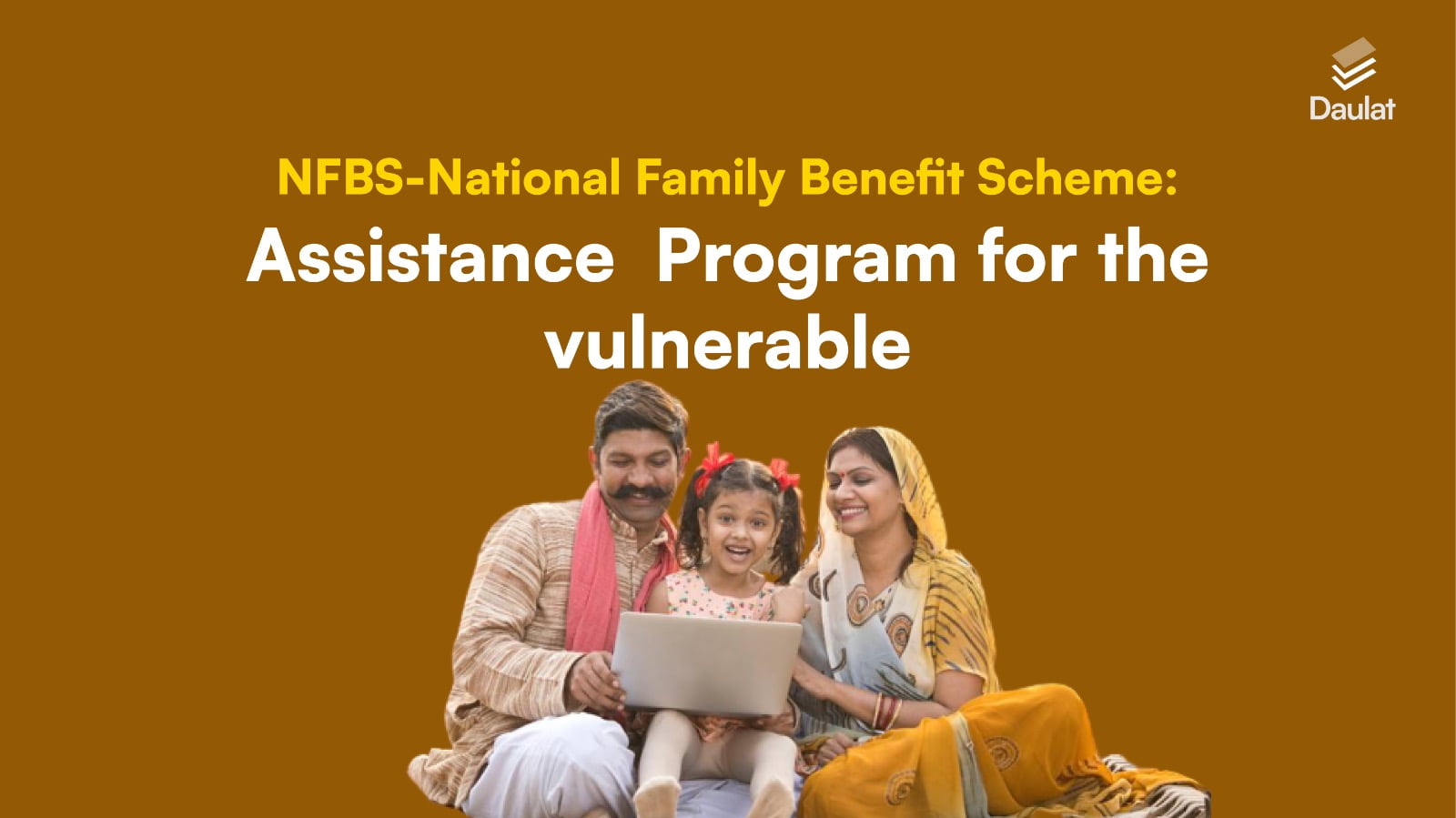In a country as vast and diverse as India, ensuring the well-being of all its citizens is a complex task. To address the needs of the most vulnerable sections of society, the Government of India has introduced several social welfare initiatives. Among them is the National Family Benefit Scheme (NFBS), which extends financial aid to families grappling with the unfortunate loss of their primary breadwinner. In this article, we will delve into the NFBS, examining its aims, criteria for eligibility, advantages, and influence on the recipients’ lives.
Understanding NFBS
The National Family Benefit Scheme (NFBS) operates as a social assistance program within the broader framework of the National Social Assistance Programme (NSAP). It was instituted by the Government of India with the purpose of extending financial support to families in crisis due to the untimely demise of their primary wage earner, whether due to natural or accidental causes.
NFBS Objectives
Sharing a common goal with the Kisan Credit Card scheme, this initiative also centers around providing financial empowerment for the underprivileged
- Financial Relief: The foremost objective of the scheme is to offer immediate financial respite to families facing distress. It disburses a lump-sum amount to help them navigate the financial hardships brought about by the loss of their primary earner.
- Poverty Mitigation: the scheme strives to alleviate the economic adversity experienced by vulnerable families and protect them from plunging deeper into poverty.
- Women’s Empowerment: The scheme acknowledges the critical role played by women in these households by ensuring that the financial assistance is directed towards the female head of the family.
Key Aspects of NFBS
- Eligibility Criteria: To qualify for the scheme, families must fulfill specific criteria, including being categorized as below the poverty line and having experienced the loss of their primary breadwinner.
- Financial Aid: Under the scheme, eligible families receive a one-time payment of Rs. 20,000 as financial assistance.
- Payment Protocol: Typically, financial aid is disbursed to the female head of the household, a move designed to empower women and enable them to manage their family’s finances.
- Implementation Oversight: The scheme is executed by state governments and Union Territories, ensuring efficient delivery of benefits to the intended beneficiaries.
Impact of NFBS
The National Family Benefit Scheme has left a notable mark on the lives of vulnerable families throughout India:
- Financial Stability: the scheme offers crucial financial security to families grappling with the unexpected loss of their primary earner. This support aids in addressing immediate financial obligations and stabilizes their economic situation.
- Preventing Further Poverty: By extending prompt assistance, the scheme helps prevent these families from slipping deeper into poverty and relying on social welfare networks.
- Women’s Empowerment: The scheme fosters gender equality by recognizing women as recipients of financial aid, thereby granting them the authority to oversee their family’s financial affairs.
- Humanitarian Assistance: the scheme serves as a pivotal humanitarian endeavor, demonstrating the government’s dedication to the welfare of its citizens during times of crisis.
Conclusion
The National Family Benefit Scheme (NFBS) is a testament to the Indian government’s commitment to social equity and poverty alleviation. By offering financial aid to families in distress due to the loss of their primary breadwinner, NFBS provides a lifeline during challenging periods. This initiative not only delivers immediate relief but also contributes to the broader mission of empowering women and averting the exacerbation of poverty in India. As part of its pursuit of a more inclusive and equitable society, the scheme plays a pivotal role in supporting those most in need.
Frequently Asked Questions
Q1: What is the National Family Benefit Scheme (NFBS)?
The National Family Benefit Scheme (NFBS) is a social assistance program implemented by the Government of India. It provides financial assistance to families facing distress due to the unfortunate loss of their primary breadwinner, whether due to natural or accidental causes.
Q2: Who is eligible to benefit from the scheme?
Families falling below the poverty line and who have lost their primary breadwinner are eligible for the scheme. The primary breadwinner is defined as the earning member of the family who has been primarily responsible for the family’s livelihood.
Q3: What is the financial assistance provided under the scheme?
Under the scheme, eligible families receive a one-time payment of Rs. 20,000 as financial assistance. This lump-sum amount is intended to help the family cope with immediate expenses and stabilize their financial situation.
Q4: How is the financial assistance disbursed to the beneficiaries?
The financial assistance provided under the scheme is typically paid to the female head of the household. This is done to empower women to manage their family’s finances and ensure the support reaches the intended recipients.
Q5: How is the scheme implemented across India?
The implementation of the scheme is carried out by state governments and Union Territories. These regional authorities are responsible for identifying eligible beneficiaries, processing applications, and disbursing financial assistance to families in need.





